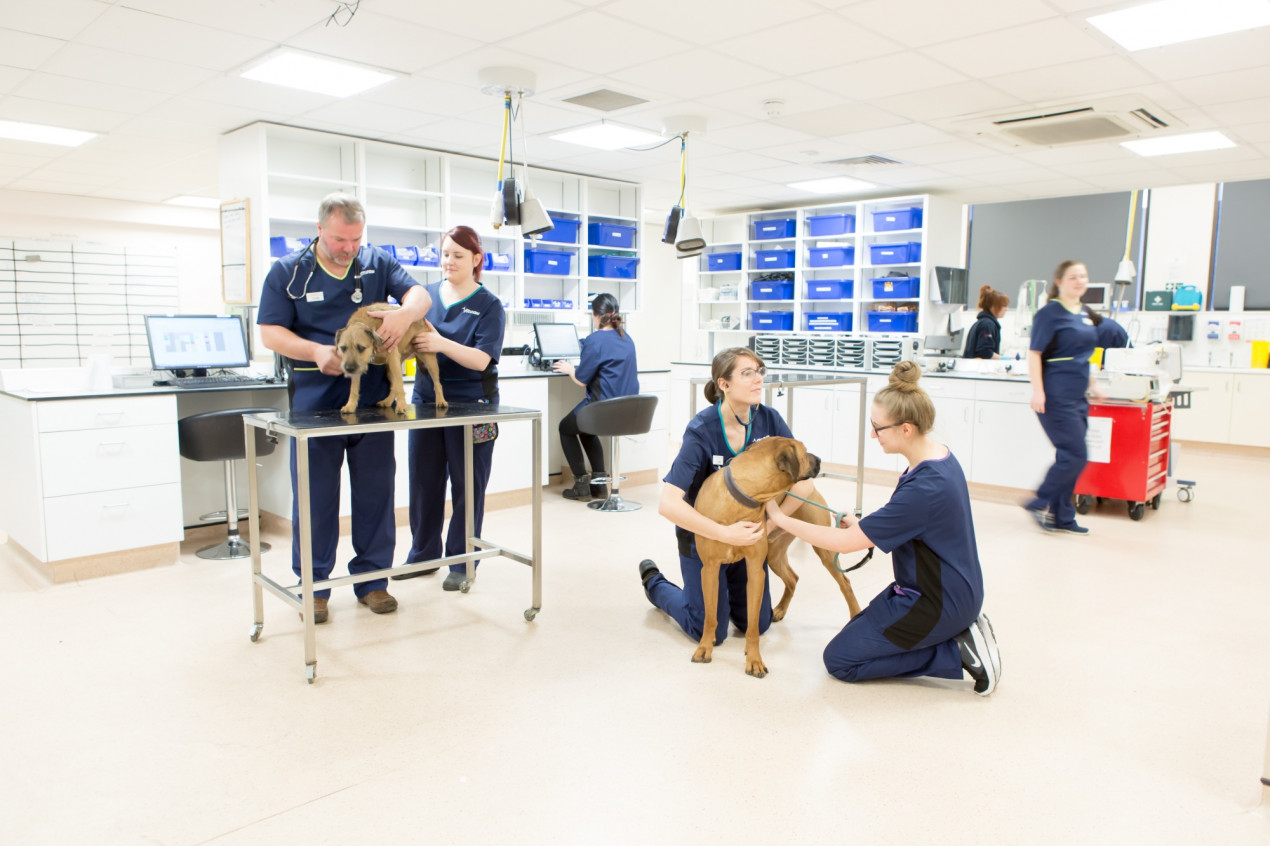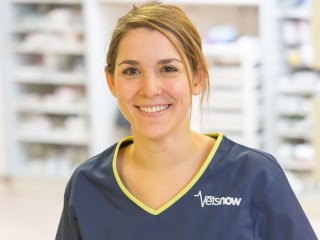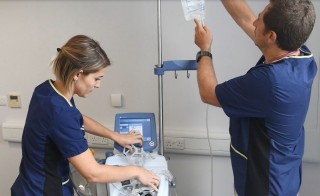
Vet talks positively about her experience on Vets Now's three-year residency programme
In our emergency and specialty hospital in Glasgow, as well as providing a first-class service to our partners and patients, we’re working hard to develop the next generation of outstanding emergency and critical care vets.
At the heart of this is our emergency and critical care residency programme.
It’s the only one of its kind in Scotland and over its three-year term vets work towards specialist status, being mentored by board-certified diplomates and referral clinicians, including Dan Lewis and Kerry Doolin.
We’ve just taken on two new residents in Glasgow who join established vet Neus Elias Santo-Domingo. Neus, 32, from Barcelona, embarked on our residency programme 18 months ago. Here she talks about the learning culture in the hospital and the incredible benefits the planned hospital expansion will bring.

Refer a case
What does a veterinary residency involve?
It’s a bit like human doctors – you can either go into general practice and do a bit of everything or you can choose to specialise in something more specific. If you decide to become a specialist, you have to do a residency to get a knowledge base in each area of your subject. In Glasgow, there is a three-year programme and residents are mentored by specialists who have already been down the same route. In Glasgow, for example, Dan Lewis mentors the residents and supervise us when we see patients. We also have to do a lot of studying so we have journal clubs and book review sessions to help with this. We also carry out comprehensive investigations into complicated cases which involves publishing our findings and hopefully contributing to the wider veterinary profession.
What benefits will the expansion of our Glasgow hospital bring?
In the past, the hospital was across just one floor. But because our caseload has been increasing space has become limited. Having the hospital spread out over three floors will allow us to dedicate each floor to a specific practice – for instance, the ground floor, which is due for completion in December, will be solely for ECC and we’ll have a dedicated ICU that we didn’t have before. We’ll also have a lot of new equipment like the cell salvaging machine and the ventilator which will allow us to provide better care to patients in an emergency. The first floor, which is already complete and fully operational, has a designated oncology room and we’ve also just purchased the equipment needed to do fluoroscopy so we can do minimally-invasive procedures with the internal medicine specialist. The renovations will allow everyone to do their jobs more comfortably and will allow for more cases to come in and be treated at a high standard of care.
Is there a mentoring culture in the hospital?
Without a doubt. Even if Dan or Kerry aren’t in the building we can always call them for advice. If a case is more medicine-focused then we get support from the internal medicine team. We also spend six weeks at a time in specific areas such as surgery, medicine, anaesthesia, imaging and cardio, improving our skills. We receive a lot of mentoring on the non-clinical side of things, too.

Tell me about your background?
I studied veterinary medicine at the University of Barcelona. I then did a rotating internship at a university there, where I practised out-of-hours care. I moved to the UK five years ago and initially worked in a first-opinion practice. I then moved to Vets Now and did an ECC internship before starting my residency in ECC around 18 months ago.
Why did you choose to specialise in ECC?
In emergency, you have to be ready for anything and it’s that adrenaline rush that I really enjoy. It’s different from critical care because that involves looking after patients who are really sick. I like the fact we’re giving those critically-ill pets a chance to survive that they perhaps wouldn’t have got without us being here. You have to consider a lot of things to help critically-ill patients recover so it can be challenging. But the successful cases are amazing because you see them go through this huge ordeal and come out the other side thanks to your treatment. It’s really satisfying.
Why did you choose Glasgow?
I wanted to specialise in ECC. It’s a niche area and there are only a few places in Europe that do ECC residency programmes. I felt that moving to the UK was a must. My options were either London or Glasgow so I chose Glasgow because of the reputation of the specialists I’d be working with and the culture in the hospital.
What do you like to do outside of work?
In my spare time, I enjoy cooking and going to the gym and I feel really lucky to be in Scotland because it means I can go on road trips and explore the countryside here. I also have a cat called Piruleta, which means lollipop, who came with me from Barcelona.

